The Appearance of Heroes

If you are an avid consumer of media, you might have noticed a few things. We write a lot about common tropes and themes that you encounter so you can begin to notice more details. So let’s do a small exercise: when you picture a hero, what do you see? Strong, virtuous, noble, upstanding. Or it is a generic white guy with five o’clock shadow and a set of rocking abs.
For some reason, a lot of our heroes look remarkably similar. Handsome, male, in-good shape, well-dressed, etc. And over the years, this image has changed slightly. It’s why a Victorian era hero looks different than the massive bodybuilders that were 80’s action heroes, and the slightly older, bearded men of today. But some things have stayed the same regardless: the fact that our heroes are overwhelmingly male, white, and heterosexual.
Boundless Discover: The Majesty of Adventure in Games

Games as a medium are about letting you enter a new world, step into the shoes of someone else, and see majestic things. They are different from other kinds of media like film or literature because you have to interact with them. A movie will keep playing, a book will keep going, no matter how you wish to proceed through it, but a game requires you to interact with it, and this interaction can change the course of the story.
More and more games are being built around open worlds and non-linear experiences. They let us as players take this sense of adventure that is so inherent to games and amplify it, and there is no better example than The Legend of Zelda: Breath of the Wild.
Light vs. Dark
One of the central and most widely used theses in literature is the idea of a battle between good and evil. It could be waged with blades and bullets, or through a battle of sharp wits and razor tongues. These two sides clash over and over, and so many times we will see them indicated by the idea of light versus darkness. Light is good, virtuous and just. It is pure, an angel decked out in gleaming white robes, or a doctor in an unblemished gown. Darkness is sinister, violent and evil. It is corrupt, an ashen demon eager to tear apart all who stand in its way or as an assassin wreathed in a dark suit.
It has always served as an easy way for us to distinguish between what is “good’ and what is “bad”, but with this compartmentalization and labeling come rather entrenched ideas of racial relationships and dynamics. For a long time, societies have looked upon pale and white skin as being better than darker skin. You can see comparisons being draw between dark skin and “dirtiness” or lack of civilization. It ties closely into the idea of otherness that we’ve talked about before, and it has roots in centuries of literary history. Read More…
Historical Accuracy vs. Entertainment
If you’ve ever gone to YouTube after a big movie came out, you’ve no doubt seen dozens of videos picking apart why it was actually a bad movie because something was included that wasn’t invented yet or a character’s backstory is incorrect or some other minor detail is wrong.
The same can be said about games, with the inclusion of weapons, vehicles, or personnel that might not fit the setting perfectly. We like to make a big deal out of details like this, for some reason. Maybe it makes us feel smart, or maybe because we get to contradict the majority opinion about a piece of media, something that teases a deeply contrarian part of our brains, because what is mainstream and popular is almost necessarily uncool. Read More…
Iconography
We’ve talked before about symbolism and how it can be used in the analysis of a piece, but today we want to look a little closer at the concept of iconography, the study of the context of images separate from their style. An image contains so much information, especially one that was crafted by an artist, and the same can be said of any of the works that we would like to analyze. If something is included on screen or in the page, then it as put there by someone intentionally. There is a reason that it exists, even if that reason is a s simple as to add clutter to the background.
When we look at a work, the style has a great deal of influence over the meaning that can be taken from it. With a painting, this could simply be the color chosen or the thickness of lines, or so many other more complex things. Compare cubism to realism, and you can see so much difference even if the paintings are of the same subject. Read More…
Paid Mods and Giving Creators Their Due
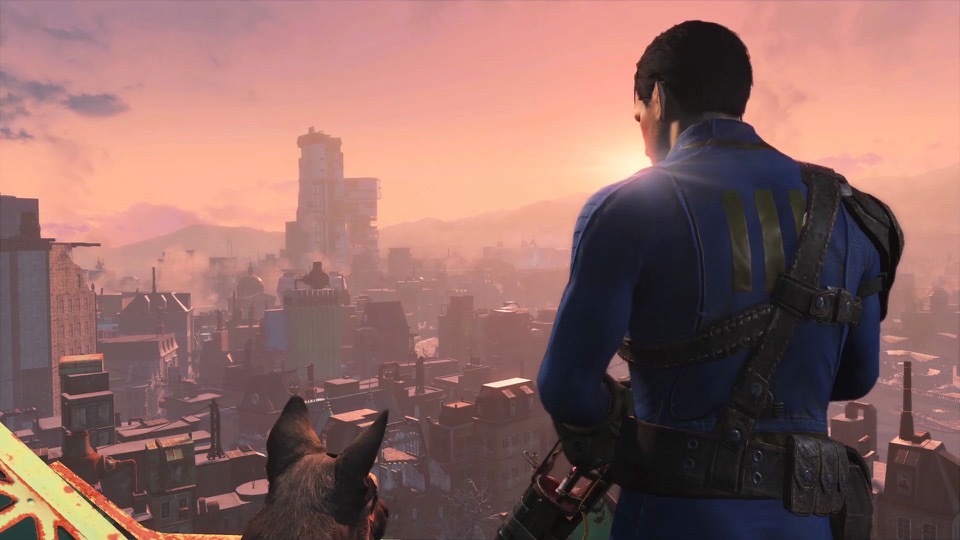
Bethesda just cannot catch a break. This year at the Electronic Entertainment Expo (E3), along with announcing yet another version of Skyrim, they stated that they would be implementing a system whereby they would be able to begin charging for select modifications for their games.
This has made a lot of people very angry, and been widely regarded as a bad move.
Almost immediately, the collective game community had a conniption, with resurfacing memories of the Valve paid mod debacle of 2015. Part of this is probably due to broad opinions about and distrust of Bethesda, but another part of it is due to a general unwillingness to pay for things within the games community. Especially things that were once available for free.
E3: Where Do Games Go From Here

There is a certain attitude within the broader game community where we see ourselves as the scrappy underdog, an industry supported by impassioned and oft-misunderstood fans that is constantly maligned by the mainstream media in favor of more traditional entertainment industries. Where the only thing that keeps game companies afloat is die hard fans, and the worth of a game is measured by the community engagement online.
We’ve had this attitude for years, because for a long time, it was kind of deserved. Games were a hobby for silly kids and “nerds” socially undesirable and turning towards a digital medium for comfort.
But we’ve left that attitude behind a long time ago. Video games are about as mainstream as it can get, and playing games is no stranger of a hobby than watching sitcoms, cooking, or hiking.
Ludonarrative Dissonance
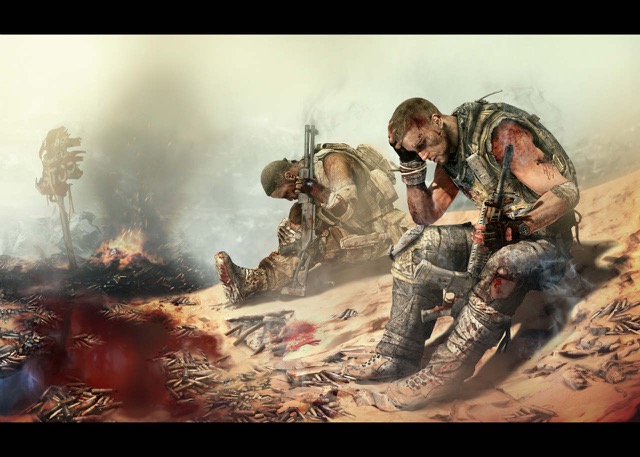
Games are a rather interesting medium to critique because of the crucial role that interactivity plays in how a story is interpreted. With a film or book, we are stuck in a single viewpoint and experience the story as if we were locked onto a roller coaster: tightly restricted and controlled. But in games, the player adds a crucial X-factor of randomness into the story that the creator has to try to control for.
To see all of the story, the player has to advance forward, completing a certain set of tasks, but sometimes the very function of the gameplay is at odds with the themes of the story being told. It is a familiar feeling within media, but games stand alone in that the layer is forced into “choosing” to do the tasks even if they don’t want to.
"Grimdark" Storytelling
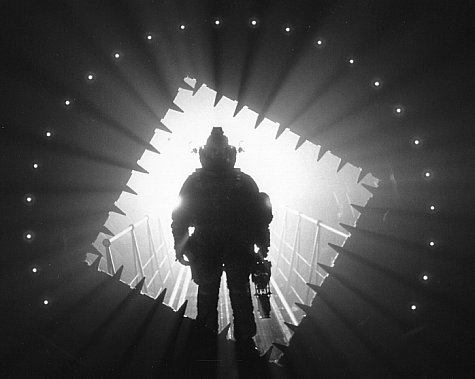
There is a widespread hate for the oft-maligned "gritty reboot" of a beloved franchise, where a director takes a well-established (and often not dark) property and propels it into a much more "realistic" world, which usually means a greyscale color palette, an actor with a five o'clock shadow, and a love of the word "fuck". Sometimes these can work out for a property, and the new direction can be a refreshing take on a familiar formula. The problem comes in with so-called "grimdark" storytelling, where the point of the story stops being the characters and becomes about how "dark" or "edgy" it can be.
Spend any significant amount of time reading fanfiction (which no one should ever do), and it is a trope that you'll become intimately familiar with> For many writers, they don't know how to make a story more mature, and as such they conflate maturity with severity, and fill their stories full of rape, torture, and gruesome murder because "it happens in the real world all the time."
Superhero Fatigue
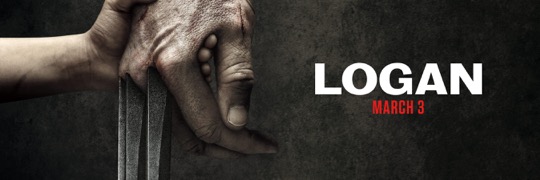
With today’s release of Wonder Woman, it has been a little over nine years since the release of the first Iron Man movie, and with it, the beginning of an international love affair with these spandex-clad superhuman, ripped from the pulpy pages of so many comic books. In these nine short years, we’ve seen the release of 36 mainstream comic book superhero movies, with even more films about the superpowers surrounding them.
It is an unprecedented inundation, and it shows no sign of slowing down, with juggernauts like The Justice League, Infinity War, Black Panther, and more on the horizon. And it is becoming harder and harder to keep getting ourselves excited at this point. The good guys beat the bad guy who had some sort of device/magic/being that threatened a city/country/world with total annihilation.
Atmosphere
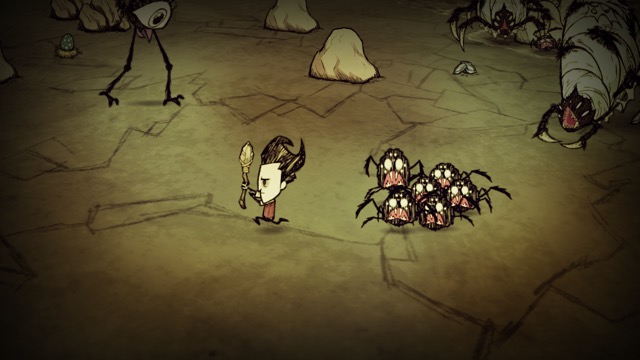
When we discuss games, especially those within the horror genre, this idea of “atmosphere” comes up again and again. I reference it rather frequently in my own writing, but one thing that we commonly neglect to do is actually say what we mean when we use it.
As it is right now, it exists as one of those, oft-used game review buzzwords, sitting alongside other repeat offenders: “visceral”, “moody”, “tight”, and countless others. We use it because it is easy, a simple way to get across a complex idea about the situations a game puts a player in, and the wide array of emotions that it evokes within you, and it would greatly benefit us all if we took the time to examine this sense to see what we really mean when we talk about atmosphere in a game.
Roguelikes and Story
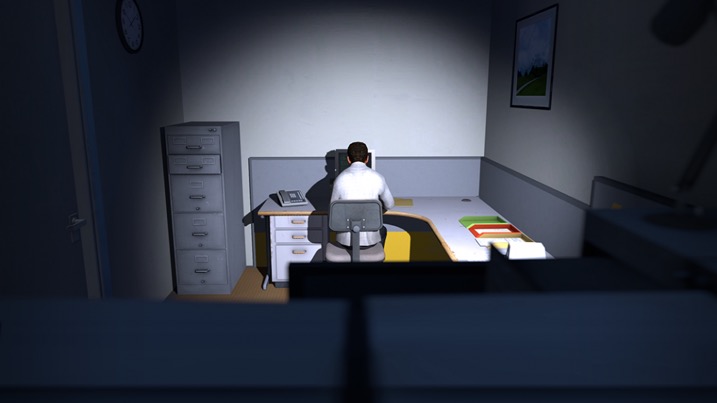
I’ve written about roguelikes before, but one thing about these games has always been limiting, at least in my opinion. The implementation of a story (or lack thereof) constrains these titles, prevents them from being something other than a casual endeavor to pick up and play when the mood strikes, and then drop after a particularly frustrating death. As a genre, it hinges on gameplay and mechanics so much because mastery and its pursuit is what keeps players coming back.
The idea of “grokking”, of not only understanding the mechanics of the game, but absorbing them enough that it enables you to look at the game differently, is the bread and butter of the Roguelike/lite genre. Sure you want to reach the end of the dungeon and fight the last boss, but even after that, you will endlessly chase the perfect run, the platonic ideal of what a playthrough could be, where everything comes together just right, with all of the correct pickups and weapons to make playing a breeze.
Patriarchy
As this site moves forward and we begin to introduce more complex topics it will become useful for us to give a primer in some of the themes and ideas that we are talking about. We've done a little bit of this already, but we will be digging in a little deeper into the topics in question. Death of the Critic is, at its heart, a critical website where we try to take a deeper look at different aspects of media. From movies to games to music and more, we aim to enhance the discussion around media in order to deepen our knowledge and understanding.
In feminist critique, the concept of “The Patriarchy” is frequently examined. At its simplest state, a patriarchy is a male-dominated society, with power being passed from father to son and societal structures built around that. It is a system, that by its very definition has men being greater or more valuable than women.
But it is not always this explicitly shown in a text. Rarely do stories in contemporary settings state outright that their male characters are worth more in some ways than the female characters. We have to look at the roles that they each group take, and the way in which they interplay with each other. Read More…
Superpowers and Storytelling
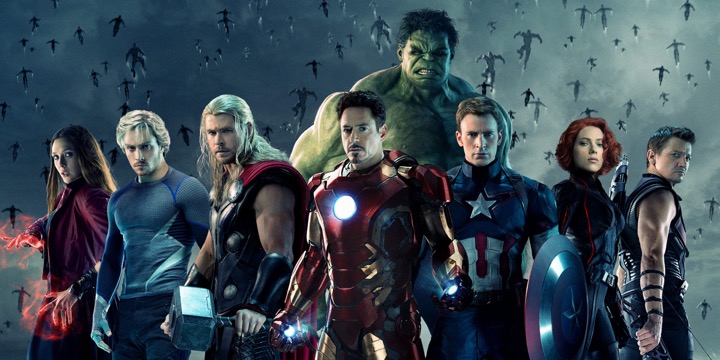
We love our superpowered heroes. Flight, strength, laser beams and more in the hands of people just like us. And the more powerful that they can be, the better. But as our heroes cross the limits of humanity, it adds more and more complications to how the story fits together, and how we, as an audience, can relate. When you start looking at superpowers, the very laws that govern our reality start to break down, and writers have to deal with the way in which this affects the plot. In the Marvel Cinematic Universe, there are multiple characters capable of warping all of reality to their whim, unkillable monsters, stones that embody pure power, literal gods, and extradimensional entities that rule over time itself. Yet so many of these reality breaking characters play by the rules of our normal universe.
Music with a Message

If you read a lot of writing about music, you will start to notice a common criticism crop up over and over again: that the song or album is shallow. It is particularly relevant when that project has a message that it is trying to convey. So, what separates an album that communicates its message well versus one that is shallow, even if both of them are trying to deal with the same level of subject matter: racism, sexism, violence, or more.
Tokenism
As a follow-up to our discussion on the Noble Savage, I wanted to take the time to talk about the delicate issue of tokenism in contemporary media or literature. Put simply, Tokenism is the idea of diversity being included for show, of including minority characters in minor roles such that a single minority character has to represent the entirety of their group.
In less malicious contexts, this can take the shape of something that you might see on a brochure, a “multicultural” group of people that are diverse in appearance only. These characters are not allowed to express themselves in a way that would significantly differentiate them from the norm (read: white and straight). It is a way for studios to brag about embracing diversity without actually doing anything of substance. Read More…
Product Placement: Realism vs. Marketing

It is a familiar experience for anyone who has watched a movie or binged a TV show: the main character will be talking, walking down a busy street and in the background, we will see storefronts plastered with ads for the same few companies, Coke or Taco Bell or some other massive corporation. Often, these ads don’t even stick out, fading to the background much like they do in our everyday life (which might itself serve as some accidental commentary about the massive marketing pushes we are subjected to).
Male Gaze
When we talk about the depiction of sex and sexuality, frequently the idea of the “Male Gaze” comes up, mostly in regard to female characters and their depiction. At its heart, it’s a rather simple concept, but it can reveal a lot about the intended audience of a piece and of who made it. The Male Gaze is how a scene is portrayed specifically to be attractive to a heterosexual, male audience. It’s designed to appeal to men, and it is evidenced through the difference in depictions of straight male characters, straight female characters, and lesbian female characters and their relationships in media. Read More…
Bethesda's Review Policy
Much has already been said about Bethesda’s decision last year to stop sending out early review copies of their games to let “everyone, including those in the media, experience our games at the same time.” It is bad for many people, like those behind large websites, but most importantly it affects the consumers and how much information they have when they go to the store to pick out a product. It does actually benefit one other group besides Bethesda: small sites like ours that would never receive these copies in the first place. I’m not a fan of this policy by any means, but it allows me to sit on the same playing field as a writer for IGN, Polygon, Kotaku, or others.
When Dishonored 2 came out, I got it the same day that everyone else did. I was able to play through it twice that weekend, and four days later I published my review. I managed to beat a lot of major publications to press (due in part to my ability to focus on one review instead of many things at once), and while being able to do this did benefit our site, letting us see a tangible traffic boost from it, it had no way for me to help those people that wanted to buy the game on launch day.
We don’t get many pre-release copies of games at this point. Most of our reviews come one to two weeks after a game has launched, and are aimed at the smaller group of players who are waiting to buy a game. But a large portion of a game’s sales happen launch or in the week following, and we cannot help these people. Traditionally, this is where larger outlets have been able to come in with Day One or pre-release reviews based off of early copies provided by the publisher. This lets Day One purchasers make informed decisions about how to spend their money and if the new game is worth it. Read More…
Living Life Down the Barrel of a Gun
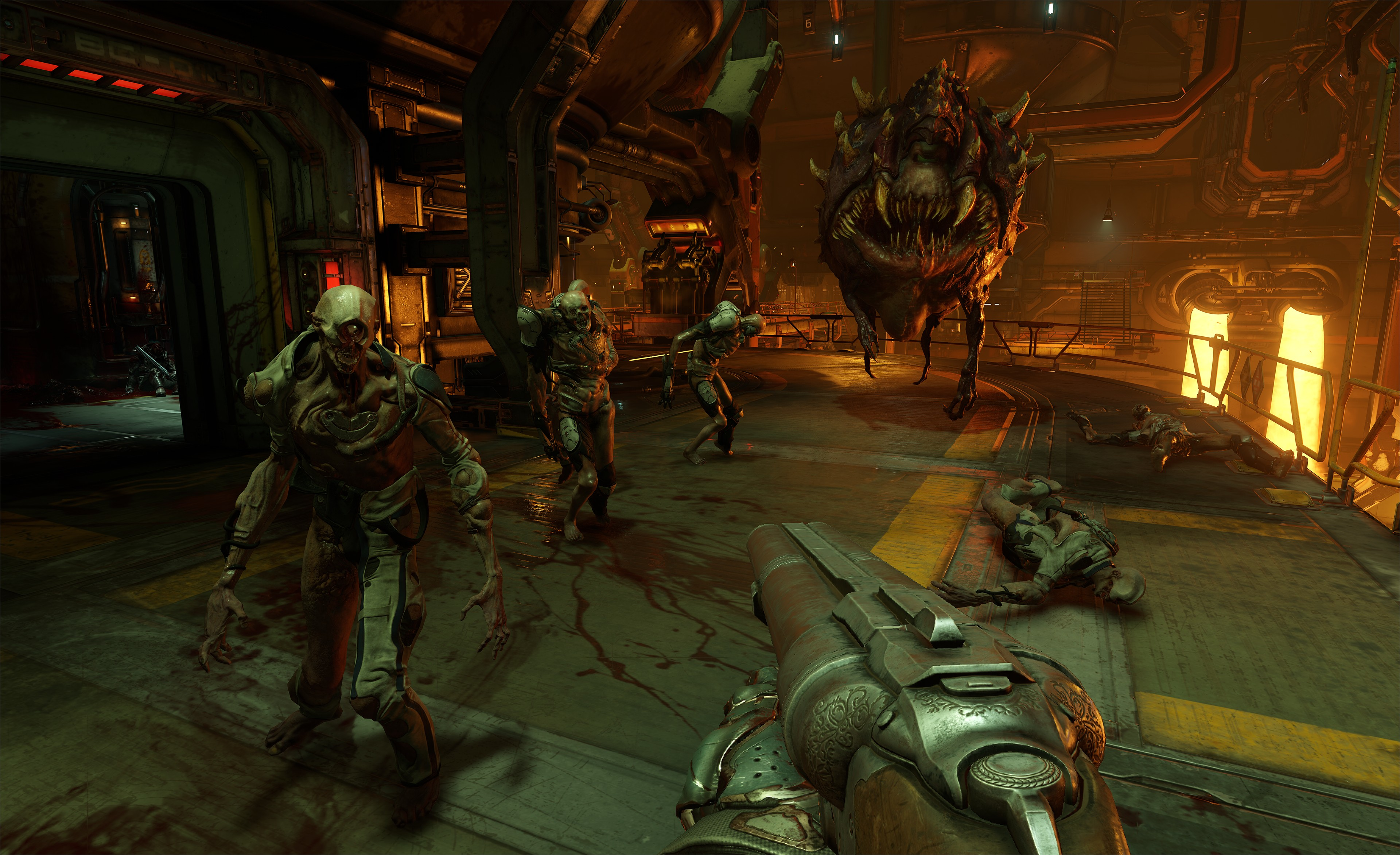
For all of the broad range of experiences that games can offer to us, the actual ways in which we are allowed to interact with them is rather limited. Most game screens look remarkably similar from a UI point of view. There is some sort of health bar, possibly a map or objective indicator in one corner, maybe a crosshair in the center of the screen, but invariably, the bottom right corner of the screen is almost always taken up by a gun. There are a few games that don’t follow this, but in the mainstream, first-person games that don’t shove a gun into your hands are the vast minority. And if your hands are filled with a gun, they have a knife, or a sword, or a bow, your weapon is offscreen, waiting to be pulled up with a single button press, aching to strike out at someone.
Twitch, Youtube, and "New Media"
The online landscape has shifted drastically over the course of the last five years. Websites and blogs used to be king, with dedicated reader bases coming back day after day to read the newest posts. There was a golden period of growth where anyone could make a website, and if they were dedicated, it would probably do pretty well. Coverage of games was done extensively through written articles, blog posts, and reviews, and there was a stable, if slightly adversarial, relationship between these companies and the companies that made games. Sites would get early review copies of games, access to developers for interviews, or in-depth press kits to help prepare coverage. In return, websites agreed to not post coverage of these titles until an agreed upon date. An equilibrium was reached.
Then YouTube came along and changed things. By virtue of its audience, content creators on YouTube relied on heavily edited videos, showing only the most exciting moments of whatever they were talking about. The massive Let’s Play community grouped around different games, and audiences had truly immense amounts of content at their fingertips. Search the name of the game, and they can find dozens of highly edited, exciting videos making it look to be fun, or small communities of super fans religiously playing and dissecting the game for years afterwards. You can see it with Counter Strike, or League of Legends, or DOTA, or Overwatch.
Companies noticed, and they took advantage of it. Many of these videos bordered on advertisements already in how they catered to audiences to draw them and in keep them interested. YouTube content creators live and die by audience retention, so they want to show viewers that they can come back day after day to consistently exciting and engaging content. Companies started reaching out to these channels, sending them free promotional materials or copies of the game, and any mention of this becomes positive advertising for the company. If someone receives a special Skyrim hat from Bethesda and shows it off on their YouTube channel because they feel special, it alters the appearance of Bethesda in the mind of consumers, changing them from a faceless corporate entity into an attentive and caring company that looks after its fans. They don’t have to ask for positive press from the creators, because any mention of them is good.
Compare this to the way in which video game websites handle the same situation. People don’t want to read an article about a special Skyrim hat that the author got from Bethesda, because it reads like an advertisement. Swag, or promotional materials, have been a part of the games industry, and indeed many others, for a long time. But unless the readers can get the exact same item, they don’t care. They view the pieces published by the website to be the statements of that website, regardless of who wrote them. There is less of a connection between the reader and the writer in most cases, and with this personal connection lost, appeals to the consumers work differently. Websites (outside of fan websites) don’t care about swag, because the audience doesn’t care about swag.
As YouTube has gotten larger, smaller content creators have slowly been getting crowded out. The platform enormously favors those with the time and the budget to produce consistent, daily, high quality, ten-minute plus videos, and the number of channels that can do this is low, in the grand scheme of things. Combine this with the too stringent DMCA policies that make it much too easy for a video to be taken down or removed from monetization, and many creators have been forced to diversify.
Twitch was there to pick up the pieces. Communities are only reinforced on Twitch, which shows categorizes livestreams by what games are being played while highlighting high profile streamers. However, on Twitch, channels did not have the benefit of editing to support their content, and personality reigned supreme. Tight knit communities form around streamers as they interact with their audience every single day to the point where a relationship is built. And companies have taken advantage of this. If a streamer is allowed to stream a game early, they are given a sense of exclusivity, and an implicit recommendation of the game from them to their fans. Anything that the company does for the streamer, from joining them on stream to sending them packages of promotional material, brings that company into the community.
There is nothing wrong with marketing or advertisement. It is how content creators can survive, and it is an integral part of the development and release of a game. It is a very necessary force. Print and online media have a whole host of ethical questions relating to companies that are being covered, ostensibly impartially, while these outlets are simultaneously running advertisements for these games. It’s a conflict of interest, and one that needs to be tackled and disclosed.
The issue with marketing comes when it stops appearing as marketing, when companies are manipulating fans and creators into giving them good press without revealing it, when content creators are being paid to create promotional videos without disclosing these facts, when the influence cannot be seen.
So where does that leave sites like ours, sites that don’t exactly fit into any of these molds? How do they survive? Do they attempt to extend their reach, diversify into different areas, start advertising the products that they are covering, or do they hunker down in their niche, trying to carve out a spot? The second is, without a doubt, more difficult. Staying truly independent is a challenge that all websites will face, and whether or not to stay that way is a question that every site will have to answer at some point during its lifespan. It is a question that we struggle with every day, and it is one that we eventually hope to answer.
____________________________________________

Tom has been writing about media since he was a senior in high school. He likes long walks on the beach, dark liquor, and when characters reload guns in action movies.
You Might Also Like:
Situational Invincibility and How it is Ruining Action MoviesExpectations vs Reality
What is Death of the Critic?
_____________________________________________
The Noble Savage
As a follow-up to our discussion on “The Other”, let’s look at a more idealized version of the same concept that is popular within literature, books, movies, and games to this day. The Noble Savage is the audience’s idea of an outsider. It is the romanticized depiction of a character untouched by the ills of modern society. They embody the traits that we idealize while at the same time being utterly foreign to us. Read More…
Sequels and Reviews
Earlier this week, we publish an article about sequels and how they are viewed in relation to their preceding works, and we wanted to take the time to clarify our position on how we address this concern when writing a review for a sequel. While we do our best to look at each work on its own merits, we cannot discount significant advances or steps back compared to other works within the same franchise. Read More…
Expectations vs Reality

In these times, sequels are the name of the game. Finding a franchise that can be used over and over again to draw people to stores and theaters. The same can be said of music alongside games and movies, as fans eagerly await the newest release by their favorite artist. The only difference is where the name recognition lies. For games it might be with a franchise or a studio, in movies with a lead actor or director, and in music it lies firmly with the artist.
The Other
We’ve talked about the Other and bothering before, but it is a topic that deserves further examination. The Other is all about setting up the relationship within a story, about creating conflict and division. And it can be used in multiple different ways. It is a rather simple idea as well. The other is different. They don’t belong. They are strange and don’t fit in for some reason. It could be any number of things: their race, gender, sexuality, nationality, religion, class, species. Anything that differentiates them from the norm as defined by the story and it’s protagonists. Read More…
Updates and Reviews
When we are reviewing a game, we have a unique issue that we don’t encounter with any other type of media. When a game launches, rarely will it stay in the exact same state over the coming days, weeks, months, or even years that it will be in the public. It will be updated and changed over time. Sometimes these updates are small: balance tweaks to multiplayer, text fixes, or subtle adjustments that no one will ever really see. But on the other hand, some alter graphics, story, gameplay, or more. At the root is this idea: patches are fixing something wrong with the game, no matter how big it may be. So how do we deal with this as reviewers. Read More…
The Tragic Hero
When we are looking at the construction of a character, it can help to understand some of the basic archetypes that many authors pull from. We recently talked about Shakespeare as a cultural touchstone, and if we look at many of his plays, we can find evidence of a “tragic hero”. The tragic hero is an age old character archetype describes by Aristotle as:
“A man not pre-eminently virtuous and just whose misfortune, however, is brought upon him not by vice and depravity but by some error of judgement, of the number of those in the enjoyment of great reputation and prosperity; e.g. Oedipus, Thyestes, and the men of similar families. The perfect Plot, accordingly, must have a single, and not (as some tell us) a double issue; the change in the hero’s fortunes must be not from misery to happiness, but on the contrary from happiness to misery; and the cause of it must lie not in any depravity, but in some great error on his part; the man himself being either such as we have described, or better, not worse, than that.” (The Aristotelian Concept of the Tragic Hero) Read More…
Humor in Games
Humor is really hard to nail in games. Its either hit or miss, and when it misses, it can be bad. There are a few games that manage to absolutely nail it (Day of the Tentacle, I’m looking at you) but so many more just absolutely flop, and in doing so, manage to pull you out of the experience entirely.
In the last month I’ve played two big games that have been really bad about it. Ghost Recon: Wildlands and Mass Effect: Andromeda, which both tried to work semi-edgy humor in alongside their more serious stories to varying levels of success. Every time I heard one of these bad jokes, it pulled me out, actively reminding me that I was playing games, poorly written ones at that. Read More…
The Uncanny Valley
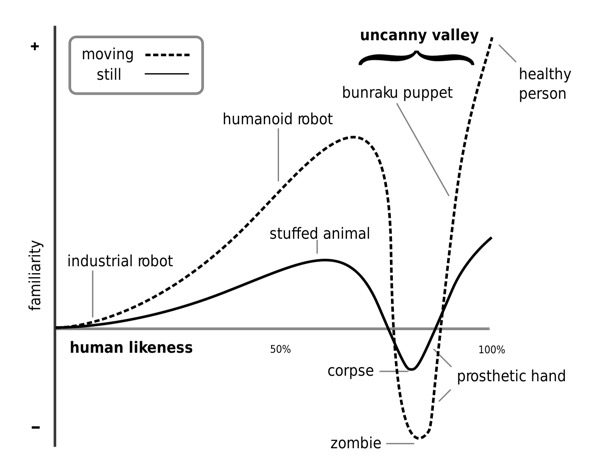
Mass Effect: Andromeda has been catching a lot of flak for its facial animations in the past few days, and by all rights it should be. They are off in a fundamental way that just makes them creepy. For the most part they are ok, but for a few characters (like lead Sarah Ryder) the animation quality is simply terrible. Any conversations about animations eventually drift into discussions about the uncanny valley. But what exactly is the uncanny valley and how does it affect animation, both in video games and otherwise?
What is Death of the Critic?
It has been a long few months since we set out on this journey, and since late last fall, we have been discussing the fundamentals behind the usage of criticism and how we can apply it to different types of media. This raises an important question that we now need to answer? Why do we do what we do, and why is this site called Death of the Critic? Read More…
The Captivating Simplicity of Idle Games
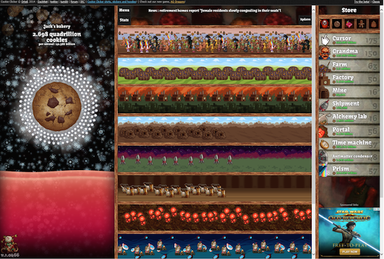
Games are built around feedback loops, obscured behind complex systems and mechanics, designed to draw us in and keep us there. We want to play the games so we can level up, become stronger, defeat new enemies, and get more and better loot. We play to get better and more efficient at playing, and in the last few years a new genre of games has stripped away this veneer and laid the inner workings bare for us to explore.
Situational Invincibility and How it is Ruining Action Movies

We like our action movies to be big, to be brash, to be full of gunfights and cool explosions and scores of dead bodies littering the streets in the wake of our stalwart hero. But this same desire often raises a problem: our hero can’t die, or even barely be hurt at all, so all elements of tension, all suspension of disbelief go out of the window.We never wonder if our hero will rescue their friend or kill the bad guy, because you can be damned sure they will, with only an annoying flesh wound and a few smartass quips to speak to the “struggle” that they went through on the way.
Explication – Holy Sonnet #10
Death, be not proud, though some have called thee
Mighty and dreadful, for thou are not so;
For those whom thou think’st thou dost overthrow
Die not, poor Death, nor yet canst thou kill me.
From rest and sleep, which but thy pictures be,
Much pleasure; then from thee much more must flow,
And soonest our best men with thee do go,
Rest of their bones, and soul’s delivery.
Thou’art slave to fate, chance, kings, and desperate men,
And dost with poison, war, and sickness dwell,
And poppy’or charms can make us sleep as well
And better than thy stroke; why swell’st thou then?
One short sleep past, we wake eternally,
And death shall be no more; Death, thou shalt die.
Explication is one of the simplest ways that we can analyze a piece. Put simply, it is a close reading, a deep look into a text to see what surfaces. This can take on a number of different forms, depending on the media that is being analyzed, from a line by line reading of a poem or song (like the one that we are going to be looking at today), to detailed character analyses from a movie or book, to an examination of a particular chapter or section (like our ongoing Anatomy of a Film) series. Today we are going to look at John Donne’s Holy Sonnet #10 and the themes of death and afterlife that it contains. Read More…
Critical Touchstones
When reading a text, it is important to build out your toolkit, your set of references for how you look at a work. And while every person’s is different, there are a few tool that everyone should have in their arsenal. Texts reference ideas that they expect the reader to be at least partly familiar with, as the goal is to have the audience understand. There are a few broad cultural touchstones that we keep looking back to for our works: the Bible, and Shakespeare. Read More…
Do the Right Thing
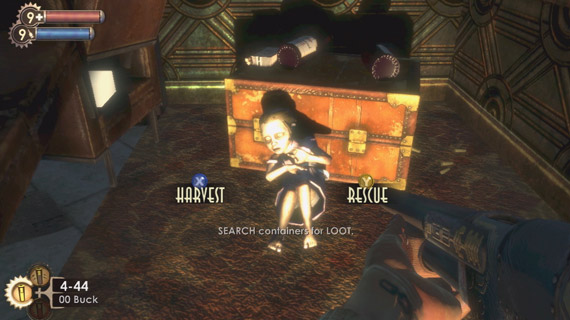
Moral choices have long been a part of gaming. They offer the chance for a player to leave their mark on a game, affecting the outcome and changing the course of a game. These binary, good vs. evil choices are so often structured in the same way. Evil choices are flashy and violent, giving you a small amount of short term gain in return for a karmic hit. Good choices then should be the opposite, giving up personal gain in exchange for doing the right thing. But this isn’t how they manifest. You are almost always rewarded for doing the “good” thing, and frequently the long term gains outweigh the gains from evil. The only real difference ends up being different achievements, or possibly some different dialogue at the end of the game.
Psychoanalytic Theory
As this site moves forward and we begin to introduce more complex topics it will become useful for us to give a primer in some of the themes and ideas that we are talking about. We've done a little bit of this already, but we will be digging in a little deeper into the topics in question. Death of the Critic is, at its heart, a critical website where we try to take a deeper look at different aspects of media. From movies to games to music and more, we aim to enhance the discussion around media in order to deepen our knowledge and understanding.
Let’s talk about schools of theory. When we critique, frequently we do so through a specific lens. Works can have a lot of meaning hidden deep within them, and if we aimed to fully analyze a book, movie, or game, we could easily fill an entire book. So we use these schools of theory as a way to focus in on one particular area of a work. This helps us hone in on a specific idea and expand upon it more fully than if we had tried to do a very broad reading. By centering on one aspect, the analysis becomes more clear and focused.
Read More…
Logan and the R-Rated Superhero

Deadpool came out almost a year ago and somehow managed to be a huge commercial success. With Logan coming out today, many have predicted that this success will be repeated. But what does this mean for the comic book superhero? Comics can be dark, frequently being much more explicit than their on screen counterparts. Glossy pages splashed with blood and gore, provocatively dressed heroines, and sinister plots spanning decades. Movies aren’t afraid of violence, but blood and sex make them squeamish.
Ghost Recon: Wildlands - First Impressions
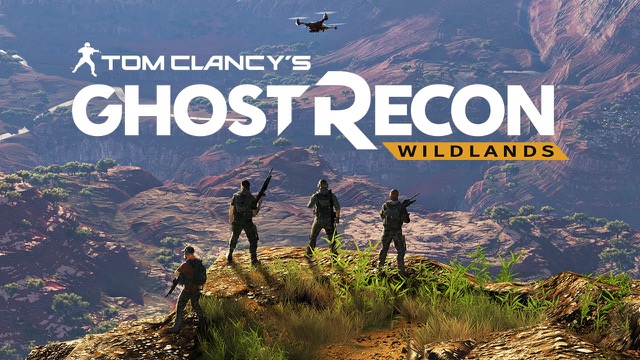
The beta has ended and in one short week Ghost Recon: Wildlands will be in everyone’s hands. So we sat down this weekend and tore through all of the content that the beta had to offer, both solo, and together in co-op. There was a huge amountof content to be found, and more than a few baffling decisions made. I don’t know if it feels like a Ghost Recon game, but it was damn fun. You can clearly see the influence that other open world games have had on its design. It’s an amalgamation of different ideas and tones that come together surprisingly well.
Postmodernist Theory
As this site moves forward and we begin to introduce more complex topics it will become useful for us to give a primer in some of the themes and ideas that we are talking about. We've done a little bit of this already, but we will be digging in a little deeper into the topics in question. Death of the Critic is, at its heart, a critical website where we try to take a deeper look at different aspects of media. From movies to games to music and more, we aim to enhance the discussion around media in order to deepen our knowledge and understanding.
Let’s talk about schools of theory. When we critique, frequently we do so through a specific lens. Works can have a lot of meaning hidden deep within them, and if we aimed to fully analyze a book, movie, or game, we could easily fill an entire book. So we use these schools of theory as a way to focus in on one particular area of a work. This helps us hone in on a specific idea and expand upon it more fully than if we had tried to do a very broad reading. By centering on one aspect, the analysis becomes more clear and focused.
Read More…
Loot Boxes

It’s notable now when a game doesn’t try to incorporate some form of micro transactions into their multiplayer modes to extend their revenue streams out for as long as possible. This speaks to an attitude where companies are competing to be the single game that players buy, keeping them in their ecosystem from as long as possible, and they’ve taken many lessons from the massively popular free-to-play mobile games that dominate the handheld marketplace. But there is a juggernaut that many people ignore. Valve’s moves towards long-term monetization of their stable of multiplayer games has changed the video game industry tremendously, adding a virtual slot machine mechanic to most large multiplayer games that come out. While the gaming community has poked fun at the “hat simulators” for years, we have seemingly ignored the way the crate and key mechanics of Valve games has created this landscape.
The Gospel of Rap

Hip-hop and religion are intrinsically linked. Far from the all-too-common perception of hip-hop as being tied purely into drugs and violence, hip-hop has acted as a reflection of the culture and artists that create it since the first time a track was spun in the Bronx in the 70’s. In the four decades since, woven throughout hip-hop are religious threads that are becoming more and more evident each day. We wrote about it in our article on preconceptions against religious rap last year, but we did not examine the root of it, where this new trend came from.
Post-Colonial Theory
As this site moves forward and we begin to introduce more complex topics it will become useful for us to give a primer in some of the themes and ideas that we are talking about. We've done a little bit of this already, but we will be digging in a little deeper into the topics in question. Death of the Critic is, at its heart, a critical website where we try to take a deeper look at different aspects of media. From movies to games to music and more, we aim to enhance the discussion around media in order to deepen our knowledge and understanding.
Let’s talk about schools of theory. When we critique, frequently we do so through a specific lens. Works can have a lot of meaning hidden deep within them, and if we aimed to fully analyze a book, movie, or game, we could easily fill an entire book. So we use these schools of theory as a way to focus in on one particular area of a work. This helps us hone in on a specific idea and expand upon it more fully than if we had tried to do a very broad reading. By centering on one aspect, the analysis becomes more clear and focused. Read More…
Marxist Theory
As this site moves forward and we begin to introduce more complex topics it will become useful for us to give a primer in some of the themes and ideas that we are talking about. We've done a little bit of this already, but we will be digging in a little deeper into the topics in question. Death of the Critic is, at its heart, a critical website where we try to take a deeper look at different aspects of media. From movies to games to music and more, we aim to enhance the discussion around media in order to deepen our knowledge and understanding.
Let’s talk about schools of theory. When we critique, frequently we do so through a specific lens. Works can have a lot of meaning hidden deep within them, and if we aimed to fully analyze a book, movie, or game, we could easily fill an entire book. So we use these schools of theory as a way to focus in on one particular area of a work. This helps us hone in on a specific idea and expand upon it more fully than if we had tried to do a very broad reading. By centering on one aspect, the analysis becomes more clear and focused. Read More…
Super Mario Odyssey
< Super Mario Odyssey continues to baffle me. I don’t always fully understand the decisions that Nintendo makes, but somehow they generally work out for them. So when they released a trailer for the new Mario game for the next real generation of Nintendo consoles, I was actually excited in a way that I don’t usually get about Nintendo products. This is how we got Mario 64 and Galaxy, and the entirely-less-cool Sunshine. New Nintendo consoles ideally drive innovation in gameplay and graphics, so the first real new 3D Mario in years enticed me. Read More…
Gun Porn - Our Fascination with the Firearm
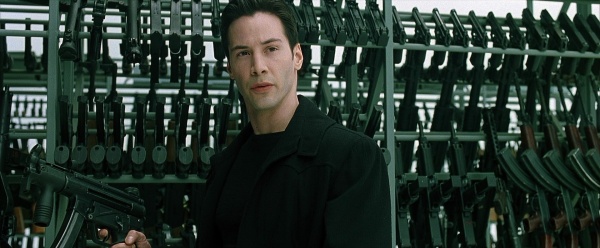
We love guns. Big and small. As long as it goes bang, we want to be able to sit and watch. Guns are ingrained in the American culture and they fill our media to the brim. It is hard to play a game or go to the movie theater without seeing a few of them. It has gotten to the point where the depiction of guns in movie and games crosses the boundary into the real world. You can see it in gunstores across the country, where teenagers stare at racks of rifles and pistols, lusting after the high-tech weaponry like a dog with a bone.
Gender Theory
As this site moves forward and we begin to introduce more complex topics it will become useful for us to give a primer in some of the themes and ideas that we are talking about. We've done a little bit of this already, but we will be digging in a little deeper into the topics in question. Death of the Critic is, at its heart, a critical website where we try to take a deeper look at different aspects of media. From movies to games to music and more, we aim to enhance the discussion around media in order to deepen our knowledge and understanding.
Let’s talk about schools of theory. When we critique, frequently we do so through a specific lens. Works can have a lot of meaning hidden deep within them, and if we aimed to fully analyze a book, movie, or game, we could easily fill an entire book. So we use these schools of theory as a way to focus in on one particular area of a work. This helps us hone in on a specific idea and expand upon it more fully than if we had tried to do a very broad reading. By centering on one aspect, the analysis becomes more clear and focused. Read More…
Scalebound and Platinum

As many of you already know, a few weeks ago, Microsoft cancelled Scalebound, a title that at first had me united until its disastrous E3 showing this last year that made the game look like the worst kind of generic action, calling back unfortunate memories of Lost Planet as I watched. I had a moment after the announcement of the cancellation where I realized something. The Platinum Games name doesn’t really mean much to me anymore. And of course I’ll offer this disclaimer that we haven’t yet seen Nier: Automata and I truly hope that it blows me out of the water and makes this whole post worthless.
Queer Theory
As this site moves forward and we begin to introduce more complex topics it will become useful for us to give a primer in some of the themes and ideas that we are talking about. We've done a little bit of this already, but we will be digging in a little deeper into the topics in question. Death of the Critic is, at its heart, a critical website where we try to take a deeper look at different aspects of media. From movies to games to music and more, we aim to enhance the discussion around media in order to deepen our knowledge and understanding.
Let’s talk about schools of theory. When we critique, frequently we do so through a specific lens. Works can have a lot of meaning hidden deep within them, and if we aimed to fully analyze a book, movie, or game, we could easily fill an entire book. So we use these schools of theory as a way to focus in on one particular area of a work. This helps us hone in on a specific idea and expand upon it more fully than if we had tried to do a very broad reading. By centering on one aspect, the analysis becomes more clear and focused.
Read More…
When Black is not Black Enough - Drake and Coding in Hip-Hop
There is a really big problem with gatekeeping in the hip-hop industry. We like to draw a sharp divide between “real” fans and most listeners, and that attitude frequently extends to the way we treat artists. This discussion is so often highly racially code. It is why Eminem is treated like a marvel, because he is the “one good white rapper.” There is a high barrier to entry to the industry and it is all about how “black” an artist can present themselves as. Read More…
Structuralism
As this site moves forward and we begin to introduce more complex topics it will become useful for us to give a primer in some of the themes and ideas that we are talking about. We've done a little bit of this already, but we will be digging in a little deeper into the topics in question. Death of the Critic is, at its heart, a critical website where we try to take a deeper look at different aspects of media. From movies to games to music and more, we aim to enhance the discussion around media in order to deepen our knowledge and understanding.
Let’s talk about schools of theory. When we critique, frequently we do so through a specific lens. Works can have a lot of meaning hidden deep within them, and if we aimed to fully analyze a book, movie, or game, we could easily fill an entire book. So we use these schools of theory as a way to focus in on one particular area of a work. This helps us hone in on a specific idea and expand upon it more fully than if we had tried to do a very broad reading. By centering on one aspect, the analysis becomes more clear and focused. Read More…
New Historicism
As this site moves forward and we begin to introduce more complex topics it will become useful for us to give a primer in some of the themes and ideas that we are talking about. We've done a little bit of this already, but we will be digging in a little deeper into the topics in question. Death of the Critic is, at its heart, a critical website where we try to take a deeper look at different aspects of media. From movies to games to music and more, we aim to enhance the discussion around media in order to deepen our knowledge and understanding.
Let’s talk about schools of theory. When we critique, frequently we do so through a specific lens. Works can have a lot of meaning hidden deep within them, and if we aimed to fully analyze a book, movie, or game, we could easily fill an entire book. So we use these schools of theory as a way to focus in on one particular area of a work. This helps us hone in on a specific idea and expand upon it more fully than if we had tried to do a very broad reading. By centering on one aspect, the analysis becomes more clear and focused. Read More…
Violence
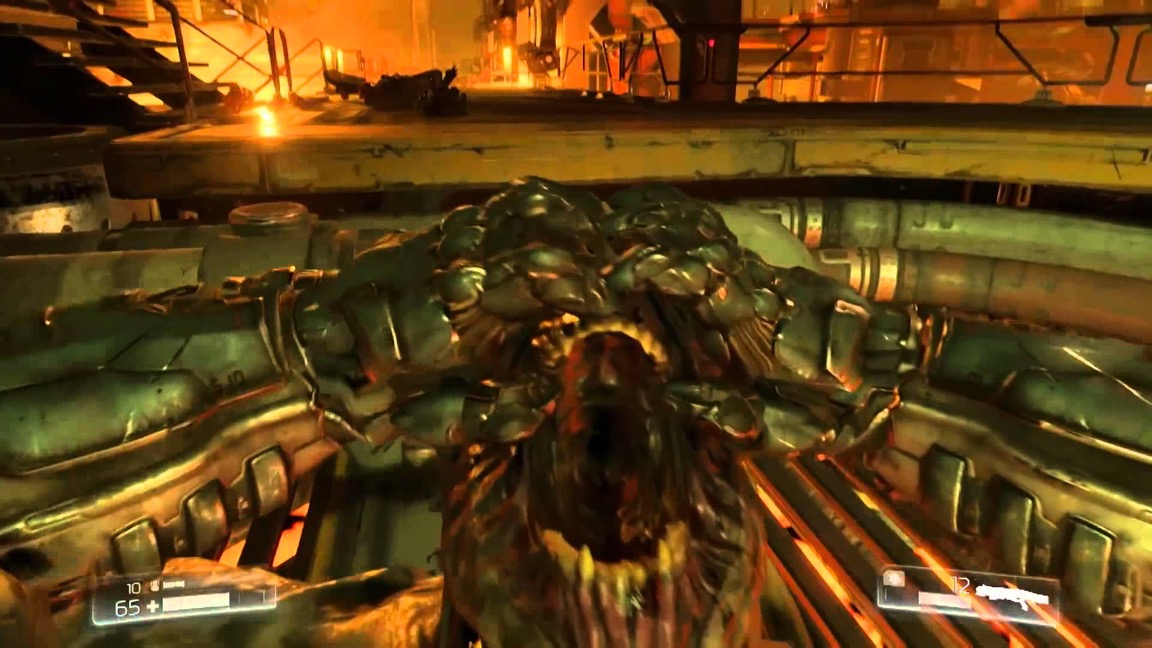
It is dark outside and a pair of headphones wrap around my head. I can’t hear my family, but I can see them standing next to me. On screen, I watch as my gloved fingers sink into the top of a demon’s skull and split it in half like an apple. My brother laughs, my mother gasps. I had gotten him DOOM for Christmas, and he insisted that I try it out on his new TV. My dad used to play the original with us when we were kids until our mom made him stop after one of us got too enthusiastic about the usage of a chainsaw.
Politics of Play - Games with an Agenda
Video games can be a powerful tool. They are unique in media in that they allow you to directly interact with the text in a way quite unlike anything else. And as time goes on, we are seeing games being leveraged in entirely different ways than we might have imagined when we first got our hands on the text adventures of the 1980’s. Instead of trying to make a game “fun”, creators are making games with messages. By allowing players to interact with the work in a meaningful way, the message carries so much more impact. Read More…
New Criticism
As this site moves forward and we begin to introduce more complex topics it will become useful for us to give a primer in some of the themes and ideas that we are talking about. We've done a little bit of this already, but we will be digging in a little deeper into the topics in question. Death of the Critic is, at its heart, a critical website where we try to take a deeper look at different aspects of media. From movies to games to music and more, we aim to enhance the discussion around media in order to deepen our knowledge and understanding.
Let’s talk about schools of theory. When we critique, frequently we do so through a specific lens. Works can have a lot of meaning hidden deep within them, and if we aimed to fully analyze a book, movie, or game, we could easily fill an entire book. So we use these schools of theory as a way to focus in on one particular area of a work. This helps us hone in on a specific idea and expand upon it more fully than if we had tried to do a very broad reading. By centering on one aspect, the analysis becomes more clear and focused. Read More…
The State of Our Union
Not only that, but I have also been joined by CJ Streetman, who has been volunteering their time and energy to act as an editor and contributing writer. And we have more people that are joining in every day to help build Death of the Critic into something amazing. Read More…
I Miss the Old Kanye

2016 was a hell of a year for Kanye West. It seems that no matter what he says or does, he can’t stay out of the limelight. He has been put under a microscope that everyone is looking through in a way that few people ever are, and it has clearly taken its toll on him. Yet at the beginning of the year, it looked like things could finally be turning around for him. The Life of Pablo (formerly WAVES) finally came out and it seemed like he had overcome the writer’s block that he had been struggling with for years. His collaborations were hot, and his work with Chance the Rapper helped make some of the best songs of the year.
Schools of Theory
As this site moves forward and we begin to introduce more complex topics it will become useful for us to give a primer in some of the themes and ideas that we are talking about. We've done a little bit of this already, but starting this week we will be digging in a little deeper into the topics in question. Death of the Critic is, at its heart, a critical website where we try to take a deeper look at different aspects of media. From movies to games to music and more, we aim to enhance the discussion around media in order to deepen our knowledge and understanding.
Let’s talk about schools of theory. When we critique, frequently we do so through a specific lens. Works can have a lot of meaning hidden deep within them, and if we aimed to fully analyze a book, movie, or game, we could easily fill an entire book. So we use these schools of theory as a way to focus in on one particular area of a work. This helps us hone in on a specific idea and expand upon it more fully than if we had tried to do a very broad reading. By centering on one aspect, the analysis becomes more clear and focused. Read More…
Dark Souls Without Difficulty
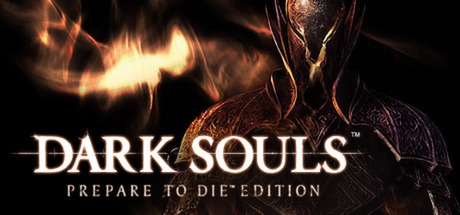
I love the Souls series. Over the years I’ve put a lot of hours into them and died a countless number of times, mostly by rolling off of cliffs. There is a lot to be praised about the game and the design, but somehow the conversation always centers on how difficult it is and how much you’ll die. It speaks to a certain attitude within the gaming community that praises “hardcore” games and decries “casual gamers.” Difficulty is king to many people and for that reason, the Souls series is frequently praised. If you can’t handle it, you just need to “get good” and deal with it. But what if you had to convince someone to play Dark Souls without ever mentioning its difficulty? How would that change our conversation about the game?
Dying to Win - Death as a Gameplay Mechanic
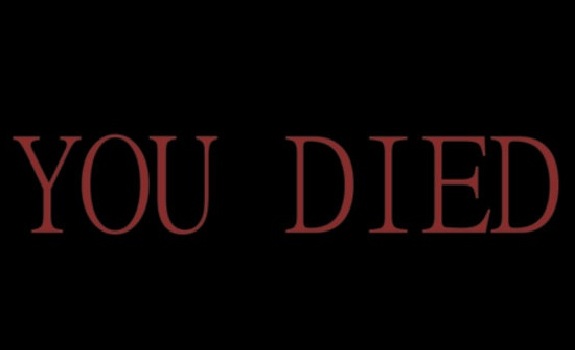
If you’ve been playing games for any period of time, you’ve likely died a lot. You’ve thrown yourself against the video game meat grinder and come out the other side. There are games almost built around the idea of death as a crucial part of the game and players treat their completion like a badge of honor. Dark Souls: Prepare to Die, Rogue Legacy, and so many more take death and turn it from an inconvenience into a mechanic. But on the other side you have games like Super Meat Boy or Bioshock, which do their best to make death as little of an inconvenience as possible, and making it a fun part of the game.
What is Criticism?
As this site moves forward and we begin to introduce more complex topics it will become useful for us to give a primer in some of the themes and ideas that we are talking about. We've done a little bit of this already, but starting this week we will be digging in a little deeper into the topics in question. Death of the Critic is, at its heart, a critical website where we try to take a deeper look at different aspects of media. From movies to games to music and more, we aim to enhance the discussion around media in order to deepen our knowledge and understanding.
This begs the question: What exactly is criticism? Read More…
The Hero's Journey
We try to give our audience as strong of a background in the themes and ideas that we talk about in our essays. As we look at media of all types, we can see so many common themes that run through our canon, our comprehensive body of work. The more media that you start to consume, the more common threads that you will begin to notice. Perhaps the most common is that of the "Hero's Journey". In essence, the Hero's Journey is a quest that a main character goes through to undergo some kind of personal growth. Harboring deep ties to Arthurian legend, you can see the same set of plot points and character archetypes instilled in so many of the stories that we tell.
You have your main character. Maybe they are a noble knight, or a chosen warrior, or some kid who doesn't quite know their place in the world. They have a specific goal: conquering a dungeon, defeating a dragon, or just talking to a pretty girl in gym class. All along the way they are faced with challenges that stimulate the growth of the character not only in strength of body, but also of character. It is the classic coming of age tale that is told in so many ways by so many different people. Read More…
Fetish on Film
I've written about sex for this site before, but today I want to talk about another oft-overlooked part about sex on screen: kink. It is an aspect of sex that most people try to ignore because it doesn't fit in their neat little box of what sex is and what it should be. A dirty deed that isn't to be talked about, done only between a man and his wife in their bedroom at night. If you want to show a character as really wild, you'll have them break one of these conventions in their sex. Maybe they'll have sex out of wedlock, or do it in a different room of the house.
When we see "abnormal" sex, sex that strays from these rigid moral guidelines, it is usually done to show us how "weird" a character is, how "non-normal" and different from the main character they are. Bad people are linked to kinky sex all too often in film, as if a predilection for whips and leather makes a person evil instead of simply kinky. Read More…
The Christ Figure
When discussing criticism, there are a few things that deserve your attention. Usually drawn from our broad cultural touchstones they are themes that we can all easily recognize and understand, even if we aren’t conscious that we are doing it. Shakespearean tales and biblical stories have seeped into many facets of our literature and they aren’t far away in most of our media.
Especially the Christ figure. If we want our hero to be good, just, kind, and honest, then who better to compare them to than the man himself, Jesus Christ. It seems like you can’t watch a movie without tripping over someone who is supposed to remind us of Jesus. From the obvious, like Neo and Superman, to the more subtle, like Optimus Prime, Harry Potter, and Aragorn. But what makes a figure Christ-like? And why do writers choose to do it so often? Read More…
Death Doesn't Matter Anymore
Movies have raised the stakes. We have started to aim bigger and bigger. No longer are our heroes in any danger, or a simple building, plane, or even airport. Now cities are cast aside as fodder as the entire world is targeted, or even more. Each blockbuster feels like it needs to one-up their predecessor. It has created an ever increasing arms race of destruction, a spiral with no end in sight, and in doing so, it has made death and disaster cease to matter. X-Men: Apocalypse, Suicide Squad, Star Wars: The Force Awakens, The Avengers: Age of Ultron, and so many more.
We watch as our villains wipe out entire cities with a wave of their evil hands to prove how powerful and merciless they are. When they do, we are supposed to empathize with the victims and fear for the lives of our heroes. Instead we find ourselves feeling bored and eating for the writers to brush these events under the rug by the conclusion of the film with no one, except for the big bad, any worse for wear. Except for all of the dead civilians but hey, who cares about them. Read More…
Showing Sex
It is really hard to write a “good” sex scene. It’s even harder to show one on screen. It is so easy to slip into the realm of heady, erotic fantasy as two lovers caress each other’s heaving bosom’s and dripping sexes. Bad sex scenes make you almost uncomfortable. I did not sign up for 50 Shades of Grey in my fiction. Moreover it feels like a teenager’s perception of what sex is like between two people: romantic, well lit, clean, and perfect. When, for the most part, sex is just sexy. Funny and awkward and so many other things. Actual sex is so far removed from what you will see in your average movie to the point where I almost wish it wasn’t included.
Rarely do I watch or read a sex scene and come away thinking, “Yeah, they got that entirely right.” It is almost never an actually significant part of the plot or character development, and they feel like they were included simply to titillate the audience. It has become a cop out to show how attracted two people are to each other to have them have sex, as opposed to actually showing a complex relationship through good acting and writing. Read More…
The Makings of a Good Horror Movie Kill

Ever since the advent of the slasher genre, horror movies have tried to become more and more inventive with the way they splatter their gallons of blood across the screen. We can only watch so many unstoppable murderers slash horny teens with machetes before we get bored. We want our mythical killers to be as ingenious as they are deadly. Our desire for the dastardly machinations of vengeful beasts is the whole reason that franchises like Saw or Final Destination can not only continue to exist, but thrive. To see the wild and wacky ways that writers can invent to kill teenagers who stumbled into the wrong haunted graveyard.
Going Back To Call of Duty
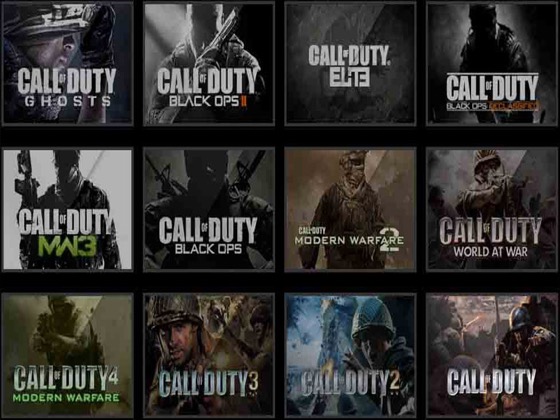
It has been interesting to see where Call of Duty has ended up. I came to the franchise back in 2005 with Call of Duty 2: The Big Red One and got hooked when I first picked up the original Modern Warfare. Call of Duty 4 changed the face of the modern shooter, and when it was announced that it was being re-released with this years integration of the franchise, it felt like it was time to go back and see where modern Call of Duty games began, and where they began to go off the rails. I have not been drawn into the last few titles and a part of me missed the simplicity of the older titles. While they kept the fast-paced, frenetic action, they shortened the feedback loop and added in so many different systems that started to overwhelm me. There was always something going on: a different medal, award, or unlock. It got to the point where there was always something flashing across my screen, and it started to lose its attraction.
Microtransactions

For years, we have heard that the future of gaming is not with big AAA console releases. Since the widespread adoption of the smartphone as the de facto standard, the message has been that the mobile platform is the future. Small, cheap/free games that subsidize themselves through ads and in-app purchases. I scoffed at this idea initially, like many of you reading. How could Clash of Clans replace Call of Duty? But in this new console generation, you can watch as games trend towards these ideas. This does not match the vision of a future in which consoles no longer exists, and you life revolves around your phone, but it also doesn’t match what we imagined when we were kids playing Nintendo games. It has raised interesting questions about what makes a game, what a game includes, and what place micro transactions have in our hobby.
Who is the Next Enemy?
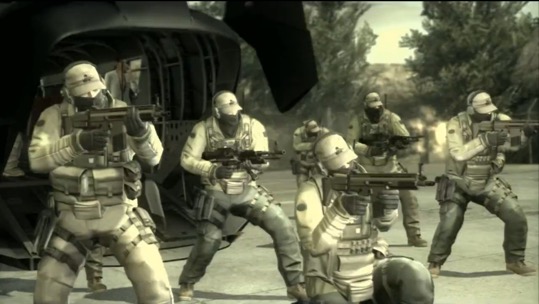
lt is no secret that video games have you kill a lot of people. If you have played them with any sense of regularity, chances are that by now you have gunned down tens of thousands of monsters, terrorists, and soldiers across the ages. Every few years, games go through distinct phases where enemies all seem to be the same type. We’ve had the World War 2 era, where Nazis were the cannon fodder of choice. Before that we had monsters and mutated freaks. Russian and Chinese soldiers were the flavor of the month for a while, and the zombie craze is still ongoing. Generic terrorists are always a good fallback, and it’s no surprise when a popular game relies on one of these clichés for their antagonists. But as our world becomes more complex and our threats become more fluid it has raised interesting questions for players and developers, and it asks us: Who is the next target?
How Much Do You Need To Play?
I’ve been playing games for a very long time. I’ve been reviewing them for years. And over this time, I’ve noticed a trend towards longer and longer games. As a player, this is a really exciting trend. I love the push towards a more intense, story-focused experience for a player. But at the same time, it is beginning to get a little out of hand. I’ve written about this before in regards to every games desire to have an expansive open world. It seems like every game wants to be an epic, 40 plus hour-long experience, following the chosen character as they save the world/galaxy/universe.
This raises an interesting question for reviewers. How much do we need to play? Read More…
Nostalgia
Memory is a powerful thing. Especially precious memories. Every one of us has a certain set of things that remain precious to us over the years. We remember fondly the time that we first experience them, and we always look back to them. Be it a particular book, movie, album, song, or game, nostalgia is a powerful force that shapes our opinions and our tastes.
That being said, it has no place in criticism. Read More…
Schlock - A Torrid Love Affair
For some reason, we love bad movies. Unlike any other form of media that we have, there is a fascination with truly awful movies. With the Sharknado’s and Troll 2’s of the world. To the point where there is an entire portion of the film industry focused on creating this D-level schlock. We don’t see this attitude in music or games. Terrible products are shunned in most industries but for some reason flourish in film. You can see a resemblance to the old, pulp paperbacks peddling in sleazy romance and smoky detective tales. Read More…
A Case Against Open World Games
It’s not often that I argue against adding features. It’s counter intuitive. It goes against everything I normally stand for, and everything everyone else normally stands for. We want more. We want our dollars and cents to be giving us a tangible experience, as massive as possible. We want the cost benefit analysis to be as positive for us as possible. To be able to milk every single last hour and minute out of a game. Read More…
Commando: The Best Action Movie of All Time
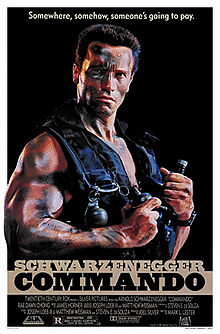
Gather around and let me tell you a tale of the greatest action movie ever made. Our determined and glistening hero, rippling with absurd muscles and bristling with enough armaments to destroy a small country, finds himself waging a war against a South American despot, all in order to save his lovely and innocent daughter. It’s a tale that will live on through the ages. I’m of course talking about Commando, the 1985 Arnold Schwarzenegger film, also starring Alyssa Milano, Rae Dawn Chong, and Vernon Wells.
The Surprisingly Progressive Gender Politics of Some Like it Hot

It is not always an uplifting experience to look back to the past and how we treated people differently. Unfortunately there is a history of treating marginalized groups poorly in the United States. Basically if you weren’t a straight white male, you got the short end of the stick in many cases. And this is very evident in looking at films. Film is, in essence, a snapshot of the time in which it was created. Looking back you can see the proliferation of ideas throughout American culture simply by looking at actors on screen or the actions they take and the statements that they make.
Religious Rap
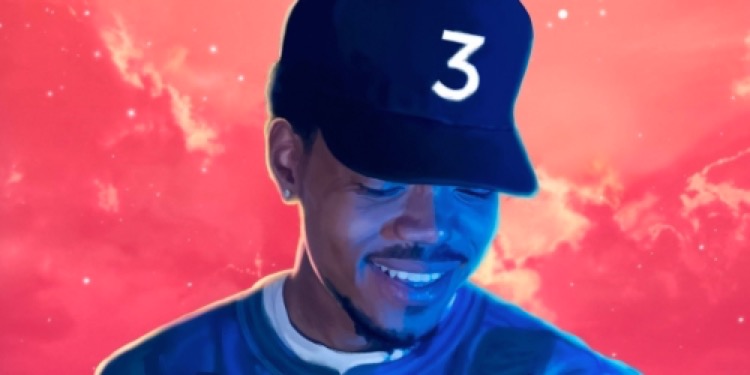
Coloring Book, the newest “mixtape” from artist Chance the Rapper, highlights many interesting things about the rap music industry. It’s a mixtape with timed exclusivity on Apple Music, a free album that might put him in the running for album of the year, and exists as a heavily gospel influenced album in a realm where self-described “Christian music” is looked down upon. But by circumventing that label and refusing to categorize his album in that way, Chance has delivered a musical bombshell that has fans asking what they are really listening to.
Read More…LGBTQ Hip Hop: The Tantalizing Problem of Labeling
Historically speaking, rap music has always been a way for a marginalized group to express themselves creatively. And in the recent years of civil rights questions surrounding the GSM (Gender and Sexual Minority) community, we can see a surge in the number of rappers that identify in that way trying to take their feelings and reflect them onto the world through their music. Rappers like Zebra Katz, Contessa “Cunt Mafia” Stutto, Angel Haze, Big Dipper, Cakes da Killa, House of Ladosha, and others are leading the so-called “homo hop” or “queer rap” movement into the 21st century. But there are problems that are associated with taking this talented group and applying this label to them. Read More…
Compulsory Heterosexuality in Film
When we look back at film, it is amazing to see how far we have come, but at the same time how far we have to go in the portrayal of characters on screen. Even now, epithets like “fag” are used as the butt of many jokes. Look, for example, at the 2007 film Superbad. In it, character Seth refers to another character as “Fagle” multiple times, and its intended to make the audience laugh. But what it does is it shows us the way in which heterosexuality has been accepted entirely as the norm, and that anything that exists outside of it is laughable in some way. If a character is not a heterosexual, or actively seen as a heterosexual, then they are weird, and need to be made fun of or fixed in some way. Read More…
Movies and Games
Like many of my peer in the critical space, my interests follow a certain path of pop culture and pop media. I love everything from books, to music, to movies, to games, and more. And fortunately for myself, I was born at what is perhaps the most perfect time in the world to enjoy these mediums, as a huge growth of creativity is taking place, a veritable Cambrian explosion of creativity and tech for me to play with. Unfortunately, the one are in which this innovation is lacking is with movie tie-in games, a genre oft overlooked by fans, and for very good reason. Read More…
Left 4 Dead - A Love Story
By now, every so-called "Hardcore Gamer" knows where the modern video game came from. Everything we know was spawned from the cultural phenomenon known as Dungeons and Dragons. It introduced us to the concept of the modern role-playing game. It gave us the idea of a persistent character and dungeon crawling epics. From there, the video game scene exploded. CRPGs flourished until the advent of the video arcades, which popularized the quarter crunching games of the eighties and nineties. Read More…
Movies and Criticism

I love movies. I always have. There is something inherently magical about the experience of watching a piece of film, old or new, and experiencing a story in front of you. For the longest time I have been fascinated by films. So I’ve consumed them. Studied them. Attacked them with a voracious appetite. I wanted to know more than I already did. They became a part of my life, something that became a part of traditions within my family. Something that I could turn to for comfort. There is something magical about re-watching a film, and remembering the first time that you watched it. What your experience was.
Skyrim and Individual Experiences
I want to talk about Skyrim. Well, I guess not just Skyrim, but I recently dove back into the game and it really started to make me think. When I first played the game back in 2011, I had an experience similar to many others who picked up the game. I ran through the giant world, stealing everything I could lay my hands on, murdering everything in sight, and grabbing every piece of loot I could find before finally putting it down, 200 some odd hours later without ever having completed the title. Read More…
On The Act of Killing
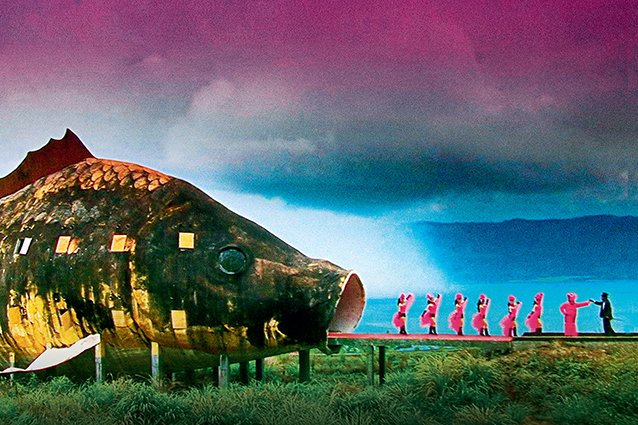
Death is one of the most significant events in our lives. It’s one of our only assurances. It is going to happen at some point. Whether you like it or not. Death will visit us, touching someone, somewhere, somehow. It’s an event that forever changes those who it touches. It has an impact that cannot be understated.
Ramblings on Criticism
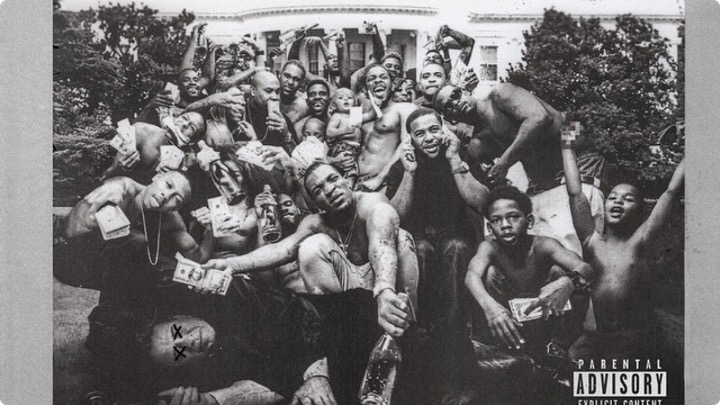
Recently an interesting thought came to mind. I’m a critic, for better or for worse, and it makes me think about the media that I consume in an interesting way. I can’t help myself but look for symbolism and deeper meanings within work, and there is something amazing about discussing them with my friends.
Lighten Up
Sometimes we are sad. Something happens. Big or small. And it just hits you. You yearn for the familiar comforts of home. A warm hug. A bowl of soup. Something familiar or happy.
Movies have always been an outlet of mine. Something that I can use to decompress. To enjoy myself. To occupy a space that needs to be filled. There is something comforting about having that presence of someone else there. Over the years I can think of dozens of films that have kept me company, and I fondly remember them. Read More…
Let's Talk About Fallout 4
Let’s talk about Fallout 4. I’m a pretty big fan of the franchise, and while it might be sacrilege to some to mention, my favorite game of all time is Fallout 3. It really made me love games like none other, and it got me into this whole criticism thing. It’s the first game I ever marathoned, playing it for seven hours straight the first day I had it, as a weird thirteen-year-old sitting in my basement in front of my TV.
So when I heard that a sequel was coming out, I was a little bit excited, to say the least. From the announcement to the release I could barely contain myself, and when the day came I kicked my friends off of my TV so I could play my preloaded copy. And as I first dove into the game it was amazing. It controlled so much better, and I didn’t have to rely on the crutch of V.A.T.S to make my way through encounters anymore.
Read More…
Kentucky Route Zero
It’s hard to talk about video games without using references to games that have come before them. That’s why we have we call games “Roguelikes” or “Metroidvanias”. Because when we encounter a new experience, we look for ways we can relate it to something we are all familiar. Maybe it is an old game like Rogue, or a massively popular series like Metroid or Castlevania. But what do we do when we encounter a truly new experience? That is the question I found myself asking when I first picked up Kentucky Route Zero. While I could see elements of its predecessors within it, I found it hard to truly describe it to others outside of simply saying that it was different. Read More…